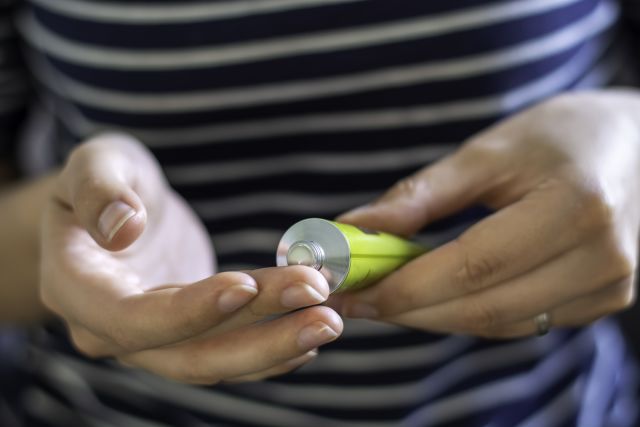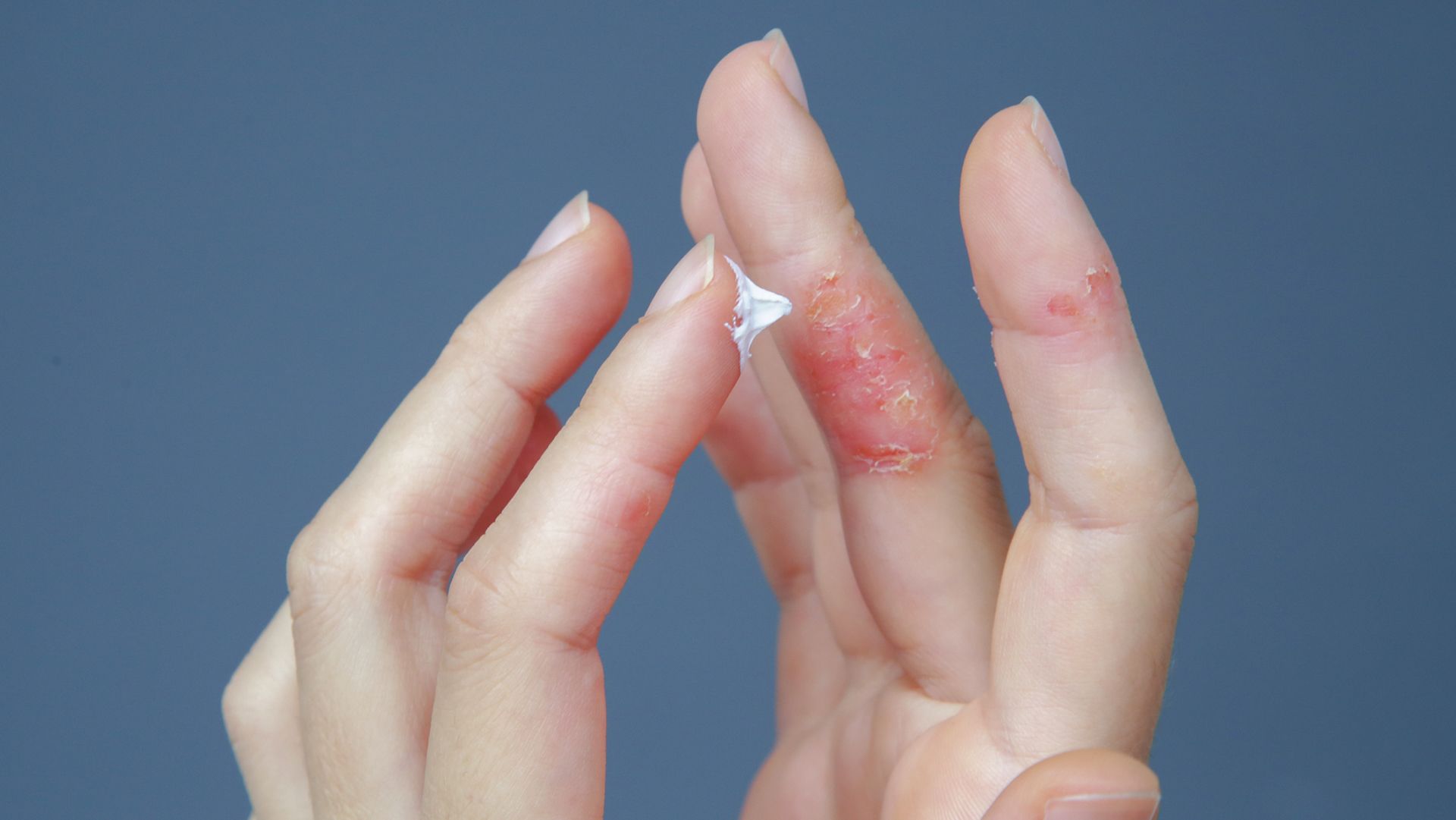Atopic dermatitis is the most common form of eczema, a collection of skin conditions that cause the skin to become inflamed, irritated, and itchy. While atopic dermatitis is recognizable to many by the patches of dry skin, the most prominent symptom is itching—atopic dermatitis has been called “the itch that rashes,” and itch is often reported as the most distressing symptom among people who have atopic dermatitis.
There is no known cure for atopic dermatitis, but it is a treatable condition. The goals of treatment are to reduce inflammation and itching, allow damaged skin to heal, prevent flare-ups, and improve a person’s quality of life while living with atopic dermatitis.
A treatment plan will be a bit different for each person, built around factors like the severity of symptoms, what a person needs from treatment, and any other health conditions that coexist alongside atopic dermatitis.
Avoiding triggers, preventing skin infections, and keeping the skin moisturized are important elements of nearly all treatment plans. In many cases, a treatment plan will also involve taking medications. The medications that treat atopic dermatitis fall into two general categories—topical medications and systemic medications.
Medications that treat atopic dermatitis
Topical therapies are medicines that are applied directly to the areas of the skin that are affected by atopic dermatitis. These include:
- Topical corticosteroids. Inflammation and the release of immune chemicals in the skin are the underlying cause of atopic dermatitis. Corticosteroids are medications that reduce inflammation and dampen immune system activity. Creams and ointments that contain corticosteroids are a common treatment for atopic dermatitis. Lower dose topical corticosteroids may be purchased over the counter, while higher dose medications are available by prescription.
- Topical calcineurin inhibitors. These are a type of immunosuppressant medication that are applied to the skin. These may be prescribed if topical corticosteroids are not effective or if atopic dermatitis affects parts of the body where topical corticosteroids should not be applied. These are available by prescription.
Systemic therapies are those that are taken as pills or taken by injection. While the effect of topical therapies is limited to the area of the body where they are applied, systemic therapies work throughout the entire body. These include:
- Oral antihistamines. Your healthcare provider may prescribe an antihistamine or direct you to take an over-the-counter antihistamine. Antihistamines are medications that reduce itching. Some cause drowsiness and may be taken to help a person sleep if atopic dermatitis symptoms disrupt sleep. Others do not cause drowsiness and can be taken during waking hours.
- Oral corticosteroids. These are corticosteroids that are taken as pills. Oral corticosteroids cannot be used as a long-term treatment but can be used to get control over severe symptoms.
- Biologics. These are drugs that block specific inflammatory proteins, which helps to control the chronic inflammation that occurs when a person has an inflammatory disorder like atopic dermatitis. The biologics used to treat atopic dermatitis are given as injections or infusions.
- Janus kinase (JAK) inhibitors. Similar to biologics, these medications disrupt inflammation by blocking specific proteins. JAK inhibitors work by blocking janus kinase enzymes, which enable inflammatory proteins to interact with one another. These medications are taken as pills.
- Immunosuppressants. These are drugs that suppress the immune system. This treatment option is usually reserved for people with severe symptoms who have already tried other treatment options without success.
Though not used to treat atopic dermatitis directly, antibiotics may be prescribed to treat infections that occur as a result of having atopic dermatitis.
Work with your healthcare providers
Getting the most benefit from your treatment plan depends on your ability to follow your treatment plan exactly as prescribed. If you miss doses of a medication or take a medication inconsistently, you will not get the full benefit of that medication. It’s important to talk to your healthcare provider about anything that might prevent you from using a medication as directed.
For example, topical medications can be messy and inconvenient to apply, especially if they need to be applied multiple times throughout the day. For another example, biologic medications can be expensive.
Be honest with your healthcare providers and speak up if you are having a difficult time following your treatment plan—or if you are considering a medication and you anticipate having a difficult time.
Remember, your healthcare providers are there to help you find solutions. They will also be your best source of information about treatment options.






